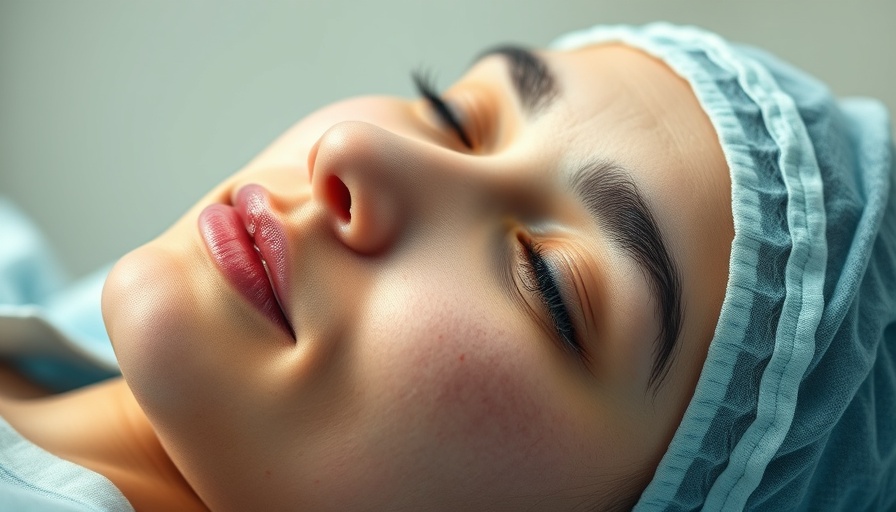
Exploring K-pop's Challenging Beauty Standards
The world of K-pop is not just about catchy tunes and vibrant performances; it exists within a culture that heavily emphasizes an idealized form of beauty. The Video titled KPOP Beauty Is A MESS!, dives deep into the psychological toll on those who attempt to fit these narrow confines of what is considered attractive. The video features Stephanie discussing her experience with beauty standards in South Korea, revealing that they're not just rigorous but also exclusionary. She candidly shares how the dominant media narratives push individuals, especially women, toward extreme measures of conformity, including plastic surgery.
In KPOP Beauty Is A MESS!, the discussion dives into the intense pressures surrounding beauty standards in the K-pop industry, prompting us to expand on the issues raised.
The Pressure to Conform to Unrealistic Standards
As Stephanie describes in her video, the journeys of aspiring K-pop idols are often paved with the burden of looking a certain way, which many in the industry describe as "perfection". Contestants are sometimes faced with immense pressure from entertainment companies, encouraged to undergo surgeries to slim down their noses, shape their jaws, and adjust their profiles to fit a defined mold of beauty. This ingrained belief that artists must fit a strict aesthetic do not merely reinforce harmful stereotypes; it also showcases an unhealthy obsession with perfection that can lead to devastating mental health challenges.
The Emotional Toll of K-beauty Ideals
While the swift rise of K-pop has been celebrated as a global phenomenon, it's crucial to examine the emotional costs that come with it. Talented young individuals find themselves in environments where every aspect of their lives is scrutinized. As highlighted in the video, idols have been reported to have their diets monitored and are often restricted to extreme caloric intakes.
This obsession with beauty manifests in alarming ways. There have been tragic cases like Sully, a former idol whose struggles became public when she pushed back against societal pressures. Yet, rather than offering support, she faced backlash for being authentic, which ultimately highlighted the grim reality of K-pop culture. Young idols may gain fame but at what cost? Emotional distress can lead to severe consequences, raising critical questions about how society values appearance over mental well-being.
The New Face of Beauty: Beyond K-Pop
This relentless pursuit of a singular beauty standard in K-pop extends beyond just the South Korean context. Global beauty standards are shifting, especially in response to the intense scrutiny and often aggressive plastic surgeries that idol trainees endure. Many aspiring idols, not just in East Asia, but across the world, feel the pressure to embody a freshness that caters to evolving standards.
This creates a ripple effect—young girls and boys worldwide might feel compelled to change their appearance, trying to emulate their idol's looks through risky surgeries or beauty products. While surgery isn’t inherently wrong, the aim at such a young age can lead to regret and problems later on in life.
What Can Be Done?
The explosive popularity of K-pop reveals that conversations around beauty and mental health are more critical than ever. As fans and consumers, we can support artists and encourage diversity in beauty. Instead of affirming a singular, normalized appearance, we should collectively appreciate individuality.
Starting with media literacy, challenging what is presented as the “ideal” can reshape public perception. Encouraging discussions about mental health, body positivity, and kindness towards ourselves and others can pave the way for healthier industry standards.
As potential consumers and fans of K-pop, let’s recognize that behind the glamour, there are real people with feelings, challenges, and a desire for acceptance that extends beyond their physical appearance.
Embracing Diversity in Beauty and Talent
Today, more than ever, we should strive for a future where beauty is defined not by the strict conventions of the past but by the diverse tapestry of who we are as people. By recognizing this, we can create a space where everyone, regardless of their background, has the opportunity to shine.
Whether you're a fan of K-pop or just curious about how beauty standards impact culture, the ongoing discussion about K-beauty reflects not only regional ideas but universally shared concerns. It’s essential to grapple with what beauty means and how we can uplift those around us in pursuit of authentic self-expression.
Take a Stand for Authentic Beauty
As we move forward, let’s join conversations, raise awareness about the challenges faced by idols and potential idols, and advocate for change. The more we share, the more hope we spread, allowing young, talented artists to redefine what it means to be beautiful.
 Add Row
Add Row  Add
Add 




Write A Comment